UTOPIA FEATURES
SELF-EXPRESSION
an article by Maggie Brown
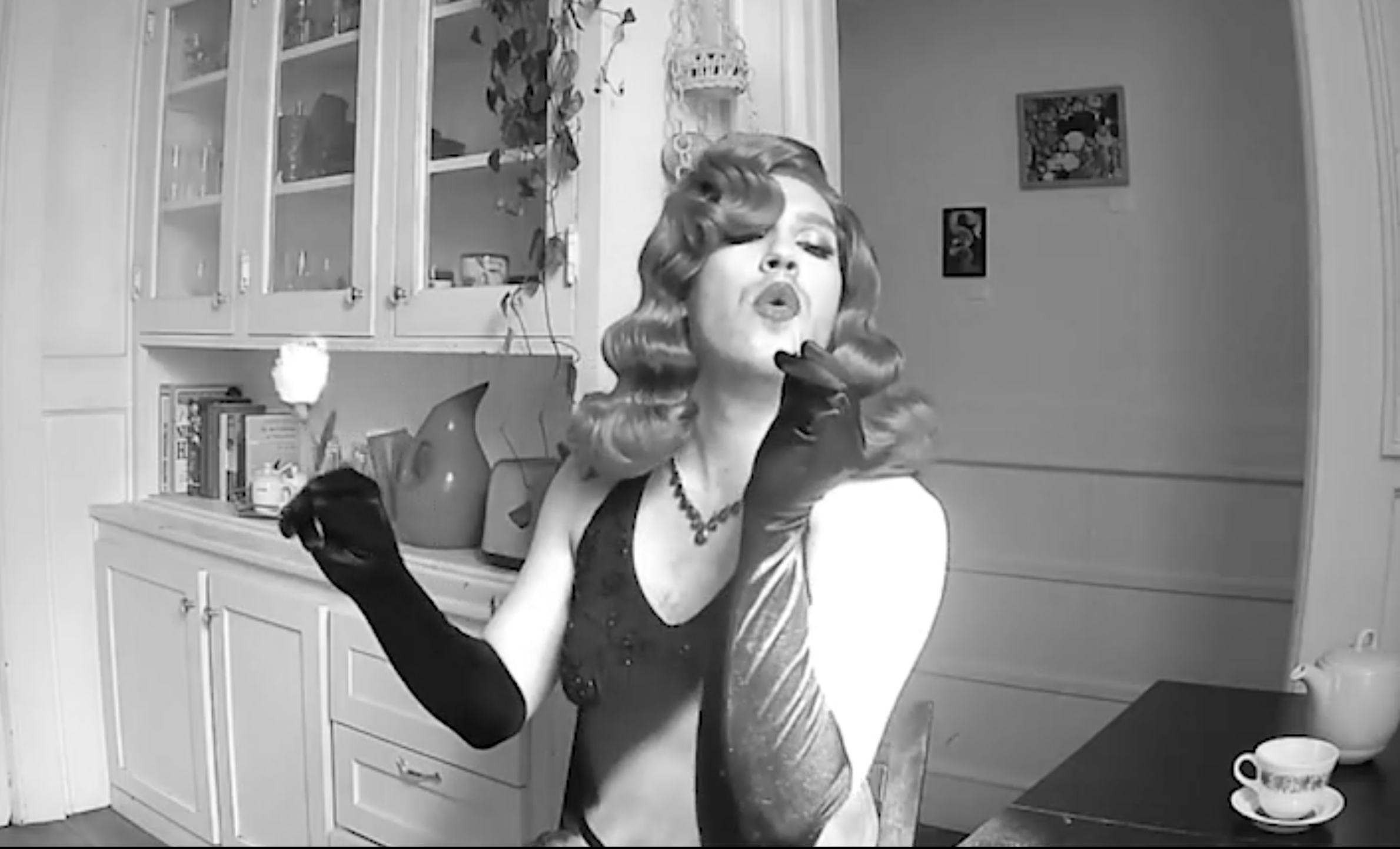
‘ People are a Surprising Fluid Event ’
Chris Steele on Gender Identity and Self-Expression
********
Minutes into this conversation, Chris Steele — a trans, non-binary drag artist, actor, and theater-maker — debunks the supposed grammatical issues of they/them pronouns. “I contain multitudes,” they say.
“My daily gender expression is a way for me to manifest the multitudes of things that I am and that I feel.” Fittingly, Charles L. Mee’s Utopia, an original play commissioned by Cutting Ball Theater and now available for on-demand streaming, celebrates the individuality of its performers — something that Chris, who plays Edmund, finds exciting. In the play, the delivery of a monologue felt like a seduction – so Chris, a drag and burlesque pro, interpreted the text as a forties-style striptease. “There is a sense of fulfillment that I have made this particular version of this role more trans and more queer,” they say proudly.
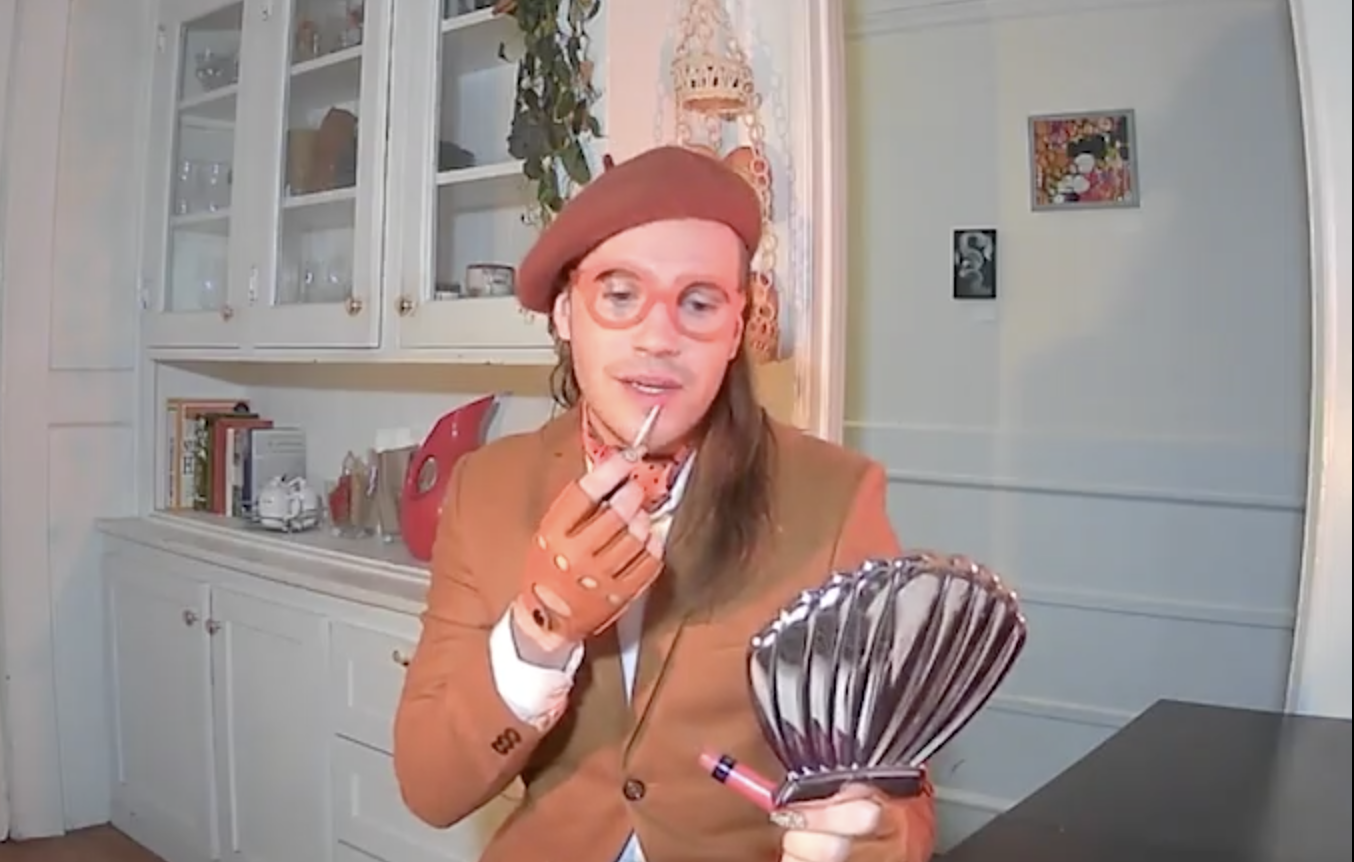
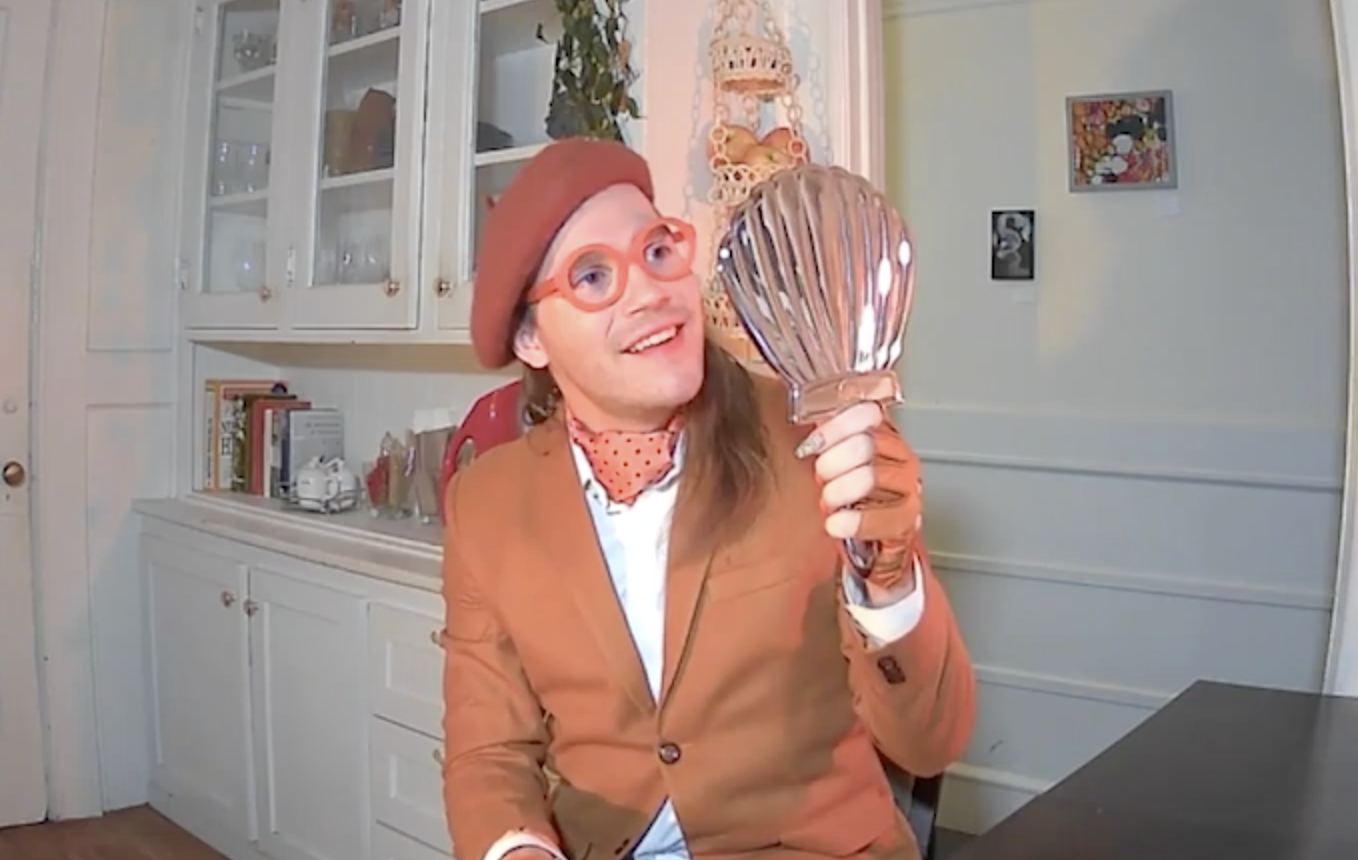
Chris’ identity and ability to explore was, like a lot of their peers in the queer community, hindered at a young age. Because they grew up in a traditional – though artistic – family, their sense of self was dictated by someone else’s terms. “I didn't have the language for it for a long time, so now I'm very loudly and unapologetically trans,” they say. Chris describes their gender expression as having everything to do with fluidity: “The reason I identify as non-binary is because I have worked very hard to love the body that I'm in and to deprogram the expectations for the body that I was born with.” Ultimately, they were able to undergo a “metamorphosis” and rid themself of the expectation “to be defined by anything forever” by studying theater and exploring their gender through self-expression – a practice that has contributed to their love for drag.
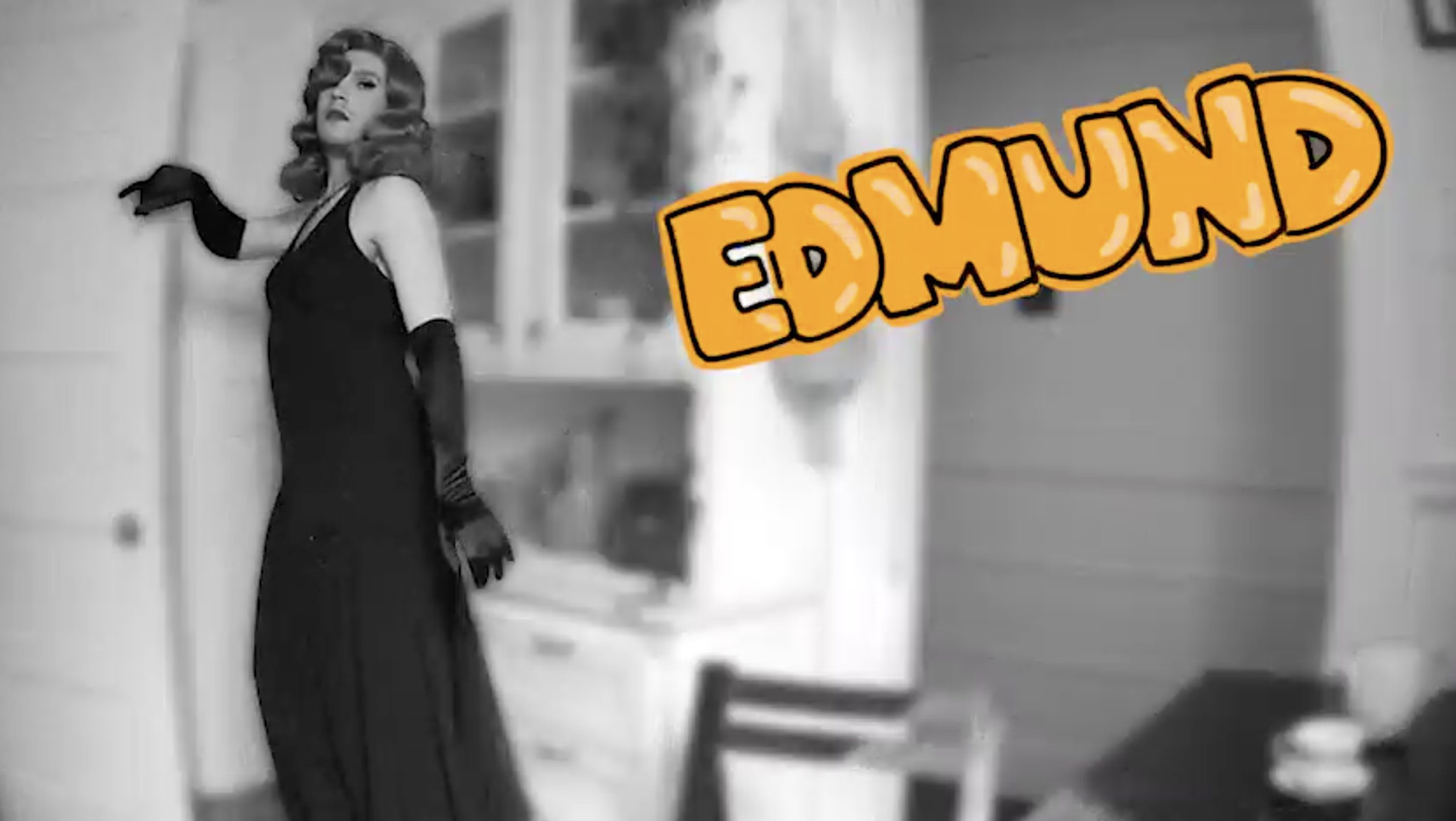
Chris wasn’t initially drawn to drag, because of their own self-identified “deeply internalized queerphobia and misogyny” – until they discovered how much of popular culture was appropriated from drag and queer communities. Their respect grew to a deep love for the art form: “Drag is theater at its purest form . . . I've seen more magic made by a drag queen and a pile of cardboard than I ever have on a Broadway stage.”
Chris started experimenting with makeup, and the “beautiful empowerment” they found in “choosing the face you present to the world, [and being able to] wash it off at the end of the day.” Having “complete control over your story” was freeing for Chris, who bemoans the fact that the theater world has often kept artists from telling the stories they want to tell.
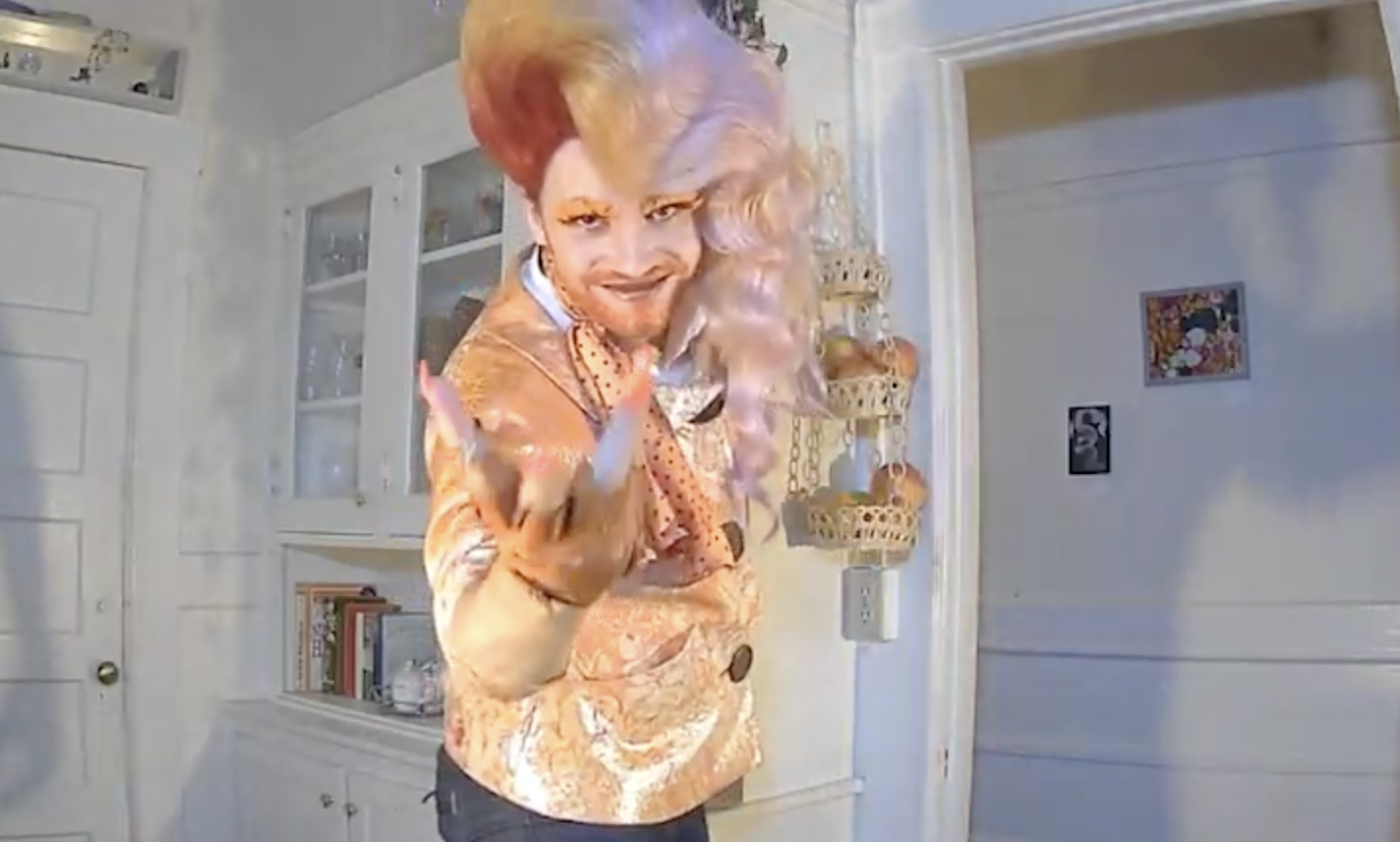
Chris’ move to San Francisco jumpstarted their queer and trans journey, so it’s impossible to imagine leaving – even as the city becomes prohibitively expensive for so many artists. “The only place that I can live is here,” they say, “How difficult would it be for me to go back into hiding who I am in order to live cheaply somewhere else? It's not a luxury for me. It's not a want, it’s a need to be here.” Of the marches and protests that have surged in recent months, Chris says passionately, “It's been beautiful to see San Francisco wake up again and find herself.” The unity of the drag and queer community in San Francisco in the wake of the Movement for Black Lives and COVID-19 has given Chris a sense of hope for the future and pride in the queer community. “Through activism, we’re imagining a future in which we don't live under systems of oppression that continually limit our capacity to dream.”
As for what keeps them dancing on tables in celebration, Chris has a simple response: the kids. Though the future is murky, Chris knows the impact that artists, especially young ones and especially within the queer community, can have on our society’s growth. They cite inspirations like Jonathan Van Ness and Rebecca Sugar’s animated series Steven Universe as examples of how gender identity and expression have shaped our culture today. Chris’ idea of a “utopia” is all about progress and imagination: “If you cannot imagine a more beautiful and more just and loving future, then you can never work to reach it . . . We are imagining the opportunities and the pitfalls of what could be as much as we are examining the truths of what exists.”
